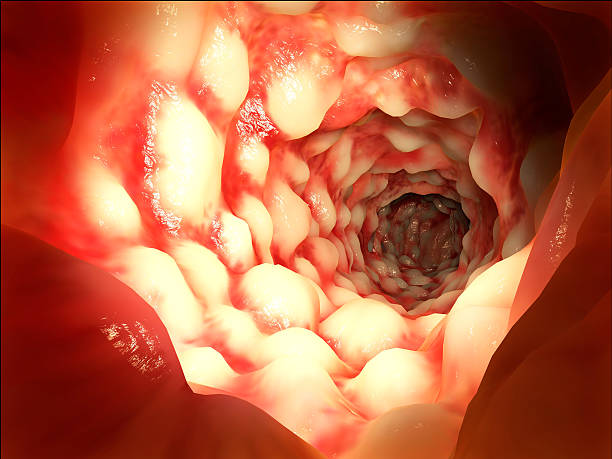The Crohn’s Disease Diet
The Crohn’s disease diet consists of several key ingredients. The first is a focus on fruits and vegetables. It’s important to get your daily serving size, which is half a cup of cooked or raw vegetables. Another important component of the diet is calcium-rich foods, such as broccoli, collard greens, oranges, and white beans. Milk and other dairy products should also be limited, although lactose-free almond and rice milk can be an option. You may also need to use a lactase enzyme supplement before consuming dairy.
What foods do Crohn’s patients avoid?
When it comes to Crohn’s disease, it is important to avoid a number of different foods. Many of these foods have high fat and protein contents, which can be hard for a person with Crohn’s disease to digest. You should also avoid greasy or fast food, which can be a trigger for a flare-up. Keeping a food journal can help you identify foods that trigger your Crohn’s symptoms.
While you should avoid foods with high fat and sugar content, there are some exceptions. While many people with Crohn’s can eat a wide range of fruits and vegetables, you should avoid fruits with skins or seeds. You should also avoid spicy foods, which can aggravate your symptoms. One exception to this rule is turmeric, which has been linked to reducing the number of flare-ups.
What foods are best for Crohn’s disease?
There is no one-size-fits-all diet for Crohn’s disease. Instead, talk to your healthcare provider about a diet for your specific condition and avoid foods that trigger your symptoms. In the meantime, following a Crohn’s disease-friendly diet can help prevent the pain and discomfort associated with your condition.
Low-fiber foods are best for people with Crohn’s disease. They’re easier to digest than foods high in fiber. Fruits and vegetables can be eaten by people with Crohn’s disease, but make sure to avoid the seeds and skin of fruits. While potatoes are a good choice for many people with the condition, they shouldn’t be eaten raw, because the skin contains a lot of fiber that can irritate the digestive system. Also, try to limit your intake of dairy.
Nuts are an excellent source of good fats, protein, and vitamin E. However, many Crohn’s patients find it difficult to digest nuts. To get the same nutritional benefits, consider using nut butter, which is much easier to digest. Most grocery stores carry almond butter or cashew butter.
Can you heal Crohn’s with diet?
Eating the right foods for a person with Crohn’s disease is very important. It can help to avoid foods high in fat, spice, or sugar. This will keep the digestive tract clean and help to minimize symptoms. You can also make adjustments to your diet to accommodate certain food allergies.
While there are general guidelines for a Crohn’s disease diet, finding the right combination for you can be tricky. The key is to experiment with different foods and note which foods help you feel better and which make you feel worse. Adding more fiber to your diet is also a good idea. Raw apples are high in fiber, but you can eat cooked applesauce instead.
Crohn’s disease is a chronic digestive disorder that can cause pain and discomfort in the intestines. It is caused by a combination of environmental and genetic factors. People with this disease typically experience abdominal pain, fatigue, and decreased appetite. During the acute phase, patients are often hospitalized. Treatment for Crohn’s disease may include medications and surgery. However, diet is a critical factor in treating Crohn’s disease naturally.
What aggravates Crohn’s disease?
The GI tract is a complex system, and the foods you eat can irritate it and worsen your symptoms. Each person has different triggers, but there are certain types of food that cause more inflammation than others. You should avoid eating these foods in order to help your condition.
Many foods can aggravate the disease, including spicy foods, high-fiber foods, and alcohol. Also, certain antibiotics may increase the risk of an infection with C. diff, which is a virus that can trigger Crohn’s disease. In addition, certain respiratory infections and pollen allergies can cause flare-ups.
The inflammatory symptoms of Crohn’s disease can be painful. To manage the condition, your doctor may prescribe medications or dietary changes. If your disease is mild, herbal supplements may help. However, they should never replace medical treatment.
What drinks are good for Crohn’s?
When it comes to Crohn’s disease, it’s essential to find a drink that’s not going to trigger your symptoms. Alcohol and sugary drinks can cause flare-ups. Also, alcohol may interact with certain medications and antibiotics. Before you drink, it’s important to check the label on your medicine and talk to your doctor.
Alcohol may trigger your symptoms because it suppresses your immune system. When your immune system is overactive, it attacks your digestive tract, triggering symptoms like diarrhea and belly cramps. Fortunately, a new study suggests that drinking moderate amounts of alcohol could actually help you manage your Crohn’s disease. Researchers have found that a few glasses of red wine a week can lower the level of a protein called calprotectin in the intestines.
Drinks high in vitamin C can also help you manage your Crohn’s symptoms. Fruit juices contain high amounts of Vitamin C, which can aid in the absorption of iron. A liquid diet is especially beneficial for those with Crohn’s disease because it contains plenty of calories and other nutrients.



